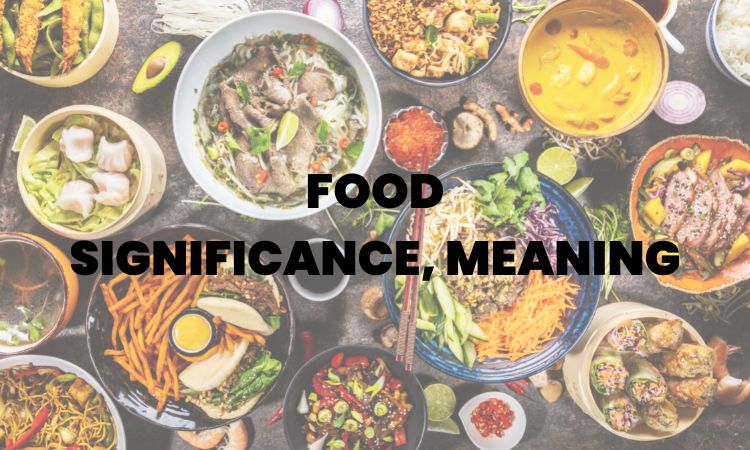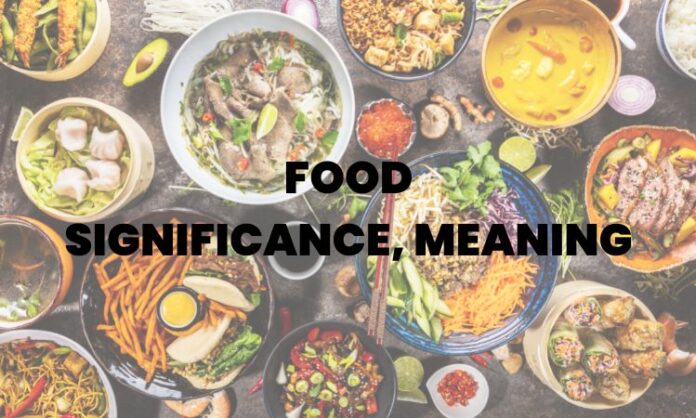Food is more than simply sustenance to the body; it is a link to our culture and our environment. For many, the meaning of food goes beyond physical nourishment, as it can be connected to tradition, emotion, and memory. In this guide, we’ll explore food definition and importance in society, delving into meaning and significance.
Food is an important part of many cultures and plays a unique role in our lives. Beyond just providing nutrition for survival, food also has spiritual, social and cultural significance that can be incredibly powerful. This post will dive into the various ways food is used to add purpose and meaning to everyday life.
If you want to read more about food ideas click here:
The Fundamental Role of Food in Society:
Food plays a fundamental role in society, providing sustenance necessary for physical survival. But it transcends mere fuel. In different cultures and communities, food is woven into many rituals; religious practices incorporate it as an offering to deities or a holy figure, while everyday activities bring friends and families together over meals. Even holidays provide opportunities to explore new flavors or sample traditional dishes, creating shared memories and customs that span generations.

Understanding Food Meaning and Definition on an Individual Level:
On an individual level, it is important to recognize that food carries many personal connotations. By understanding the significance of food meaning and its definition on a personal level, it is possible to harness its power for self-care. Individuals can explore their relationship with food in order to better recognize how moods, routines, thoughts, and feelings are connected to meals or snacks. Understanding food through this lens helps create a healthier balance and improve overall well-being.
Nourishing Our Bodies and Souls Through Meaningful Meals.
Food is so much more than sustenance for our bodies. When we look at food and its significance from the broader perspective of nourishing our souls, it takes on a whole new meaning. Meaningful meals are rooted in shared values and went beyond the basic function of eating. By understanding the importance of food meaning, we can gain insight into how to create unique eating experiences that add to our overall well-being.
Understand the Culture Around Food:
Food is a crucial part of many cultures, often signifying important values and customs. Understanding the culture behind food can help us develop a greater appreciation for certain dishes, celebrate traditions authentically, and express solidarity with people from all parts of the world. By learning about different cultures’ cuisines, we can gain insight into their worldviews and build cultural bridges around the globe.
Food Culture: Preserving Traditions Through Taste, Scent, and Texture:
Food culture is an important factor in defining the significance of food. It can provide a sense of identity, tradition, and memory through the flavors of our dishes, the scents that waft through the kitchen or dining area, and even the unique textures of certain foods. Preservation of these traditions carries with it an inherent importance and value that cannot be understated. Through these customs, we are able to connect with our heritage and affirm our place in time.
Celebrating the Richness of Food Cultures Across the World.
The ability to learn, appreciate and interact with various cultures through food can be a powerful experience. From exploring traditional dishes to cultural exchanges like cooking classes and dinner parties, food has the potential to celebrate different backgrounds and unite diverse communities. By exploring regional specialties, we are able to gain a better understanding of human history and the impact that food has had on creating an awareness of one’s own identity.












